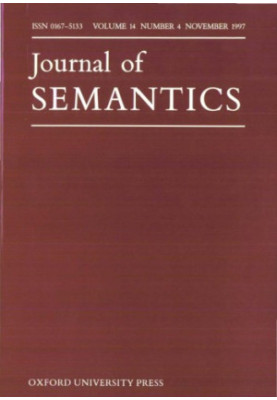Journal of Semantics, Volume 14, Issue 4, 1997 14 4
 Моментальное скачивание
Моментальное скачивание
после оплаты (24/7)
 Широкий выбор форматов
Широкий выбор форматов
(для всех устройств)
 Полная версия книги
Полная версия книги
(в т.ч. для Apple и Android)
In this groundbreaking book, Wierzbicka demonstrates that every language has its "key concepts" and that these key concepts reflect the core values of the culture. Further, she argues that within a culture-independent analytical framework one can study, compare, and even explain cultures to outsiders through their key concepts. The framework Wierzbicka proposes is the well-known "natural semantic metalanguage" that she developed with her colleagues. For this study, Wierzbicka focuses on four languages and cultures: Japanese, Australian English, Polish, and Russian. She identifies "culture laden" words in each of these languages; these words are, in a sense, "untranslatable." She shows, however, that the words can be "explained" by means of the semantic metalanguage's hypothetical semantic primitives such as someone, something, do, happen, want, say, know, think, good, bad, etc.
LF/345982/R
Характеристики
- ФИО Автора
- Oxford University Press
- Язык
- Английский
- Серия
- Journal of Semantics 14 4
- ISBN
- 9780195095746
- Дата выхода
- 1997



























